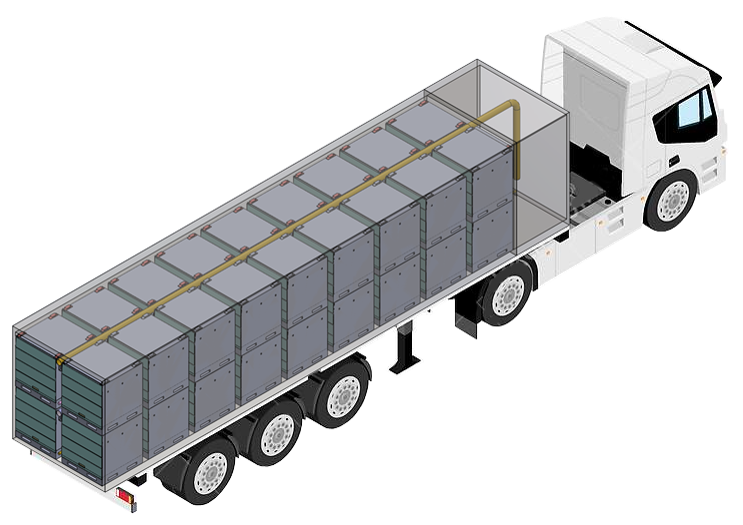Phoenix, AZ - FreshKube Inc, a technology company specializing in cold chain logistics, has been awarded a Small Business Innovation Research (SBIR) and Small Business Technology Transfer (STTR) grant from the National Science Foundation (NSF). The grant will fund research to develop new technology aimed at improving cold logistics for small produce growers.
The NSF's SBIR.STTR program provides funding to small businesses to help them conduct research and development that has the potential for commercialization and public benefit. The program is designed to support high-risk, high-reward innovations that have the potential to improve people's lives.
FreshKube's research project aims to address a major challenge facing small produce growers: the lack of efficient and cost-effective cold logistics solutions. Currently, small growers often have limited options for getting their produce to market while maintaining quality and freshness. This can result in significant losses for growers and reduced access to fresh, locally sourced produce for consumers.
"We're thrilled to receive this grant from the NSF, which will allow us to further our mission of helping small growers succeed by improving their access to reliable cold logistics solutions," said Rene Villalobos, CEO of FreshKube. "Our team is excited to dive into this research and develop new technologies that can make a real difference for small growers and their communities."
This SBIR Phase I project targets food waste, energy use and carbon emissions reductions by developing a highly efficient and adaptable refrigeration system for refrigerated transport. We leverage the concept of mini-containers, which are small, insulated boxes with environments controlled by a central driving unit that contains a refrigerator and other environmental controls. It will have a transformative effect on increasing the economic feasibility of small farmers by allowing them to target niche, more exclusive markets directly through a more resilient, efficient, and potentially carbon-neutral cold supply chain.
If successful, the impact of the research will reverberate to other branches of the refrigeration and air conditioning industry, an industry which is responsible for a significant portion of the global energy use and carbon emissions. The potential impact of the research includes economic development, availability of nutritious food for the general population and mitigation of negative environmental effects of cold logistics.
The research has the potential to be a gamechanger for the financial feasibility of small farmers by providing them with access to efficient logistics to get their products to lucrative fresh produce markets, putting them in a much better position to take advantage of already established markets, and to grow and attract new entrants to this segment of the economy. Lowering food waste will create savings up and down the supply chain.
Two key technical challenges are addressed in this research. The first area has as its main objective the development of a volume-adaptable refrigeration system that allows the efficient operation of several levels of control to best adapt to high levels of cooling capacity needs. The second area of research corresponds to the development of the methodology and solutions algorithms to exercise a hybrid control strategy for the optimal scheduling operation of the refrigeration system.
The archetype refrigeration system would be subject to constraints imposed by the heterogeneous loads stored in the different special storage and transportation units known as mini-containers which receive cooling and other environmental services from it. This will allow efficiently aggregating, storing, disaggregating, and distributing fresh products in the mini-containers.
The mini-containers will allow the emergence of efficient cold logistics for small loads by enabling the capacity of large transportation containers to be split among multiple conveyances. It will also make possible to convert almost any truck into a reefer truck and any warehouse into a cold storage facility, supporting the emergence of sharing economies in cold logistics.

